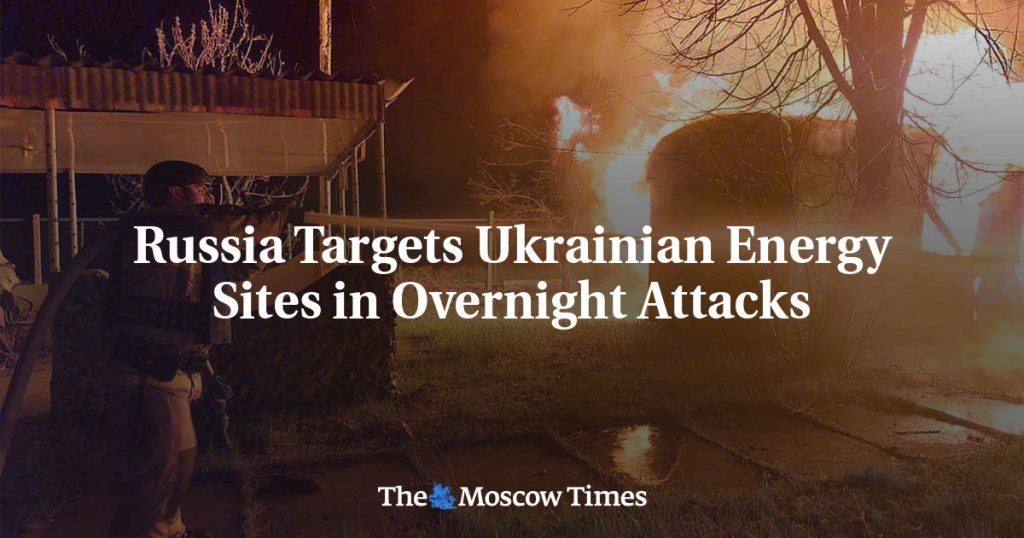Russia launched aerial strikes on two energy sites in southern Ukraine, causing temporary outages for energy customers in the Mykolaiv and Kherson regions. The attacks targeted a substation in the Mykolaiv region and generation and production facilities in Odesa. Ukraine’s air force reported that Russia fired 17 drones and three missiles at its territory overnight, marking some of Moscow’s largest aerial strikes since the invasion two years ago. Russian authorities justified the attacks as retaliation for Ukrainian drone strikes on Russian border regions and oil refineries, while Kyiv claims its strikes inside Russia are legitimate efforts to disrupt the supply of fuel used by the Russian military.
The ongoing conflict between Russia and Ukraine has intensified in recent months, with Russia heavily targeting Ukraine’s energy infrastructure. Moscow’s actions have raised concerns about the impact on energy supplies in the region and the potential for further escalation of the conflict. The attacks on energy facilities in southern Ukraine demonstrate Russia’s determination to continue its targeted assaults despite international condemnation. Ukraine has been forced to respond to these attacks by targeting Russian energy infrastructure, further fueling tensions between the two countries.
The latest aerial strikes in southern Ukraine are part of a broader pattern of aggression by Russia against its neighbor. The attacks on energy facilities highlight Russia’s strategy of targeting critical infrastructure to destabilize Ukraine and maintain its influence in the region. By disrupting energy supplies, Russia aims to weaken Ukraine’s economy and exert pressure on the Ukrainian government. The ongoing conflict has led to significant damage to infrastructure and civilian casualties, further exacerbating the humanitarian crisis in the region.
The use of drones and missiles in the recent attacks underscores Russia’s military capabilities and willingness to engage in aggressive tactics. The sophistication of the attacks on energy facilities raises concerns about the potential for further escalation of the conflict and the impact on regional stability. Both sides have engaged in retaliatory strikes, further fueling tensions and increasing the risk of a broader conflict. The attacks on energy infrastructure have also raised concerns about the safety and security of critical facilities in the region, highlighting the need for international intervention to de-escalate the situation.
As the conflict continues to escalate, the international community has called for a peaceful resolution to the crisis and an end to the violence. Diplomatic efforts are underway to negotiate a ceasefire and address the root causes of the conflict. The attacks on energy facilities in southern Ukraine have further complicated efforts to find a peaceful solution, as both sides remain entrenched in their positions. The humanitarian situation in the region continues to deteriorate, with thousands of people displaced and in need of urgent assistance.
The aerial strikes on energy sites in southern Ukraine underscore the devastating impact of the conflict on civilians and critical infrastructure. The attacks have disrupted energy supplies, leaving thousands of people without power and further exacerbating the humanitarian crisis in the region. The international community must continue to press for a ceasefire and a peaceful resolution to the conflict to prevent further escalation and alleviate the suffering of civilians. The attacks on energy facilities highlight the urgent need for a comprehensive and sustainable solution to the crisis to restore stability and security in the region.


